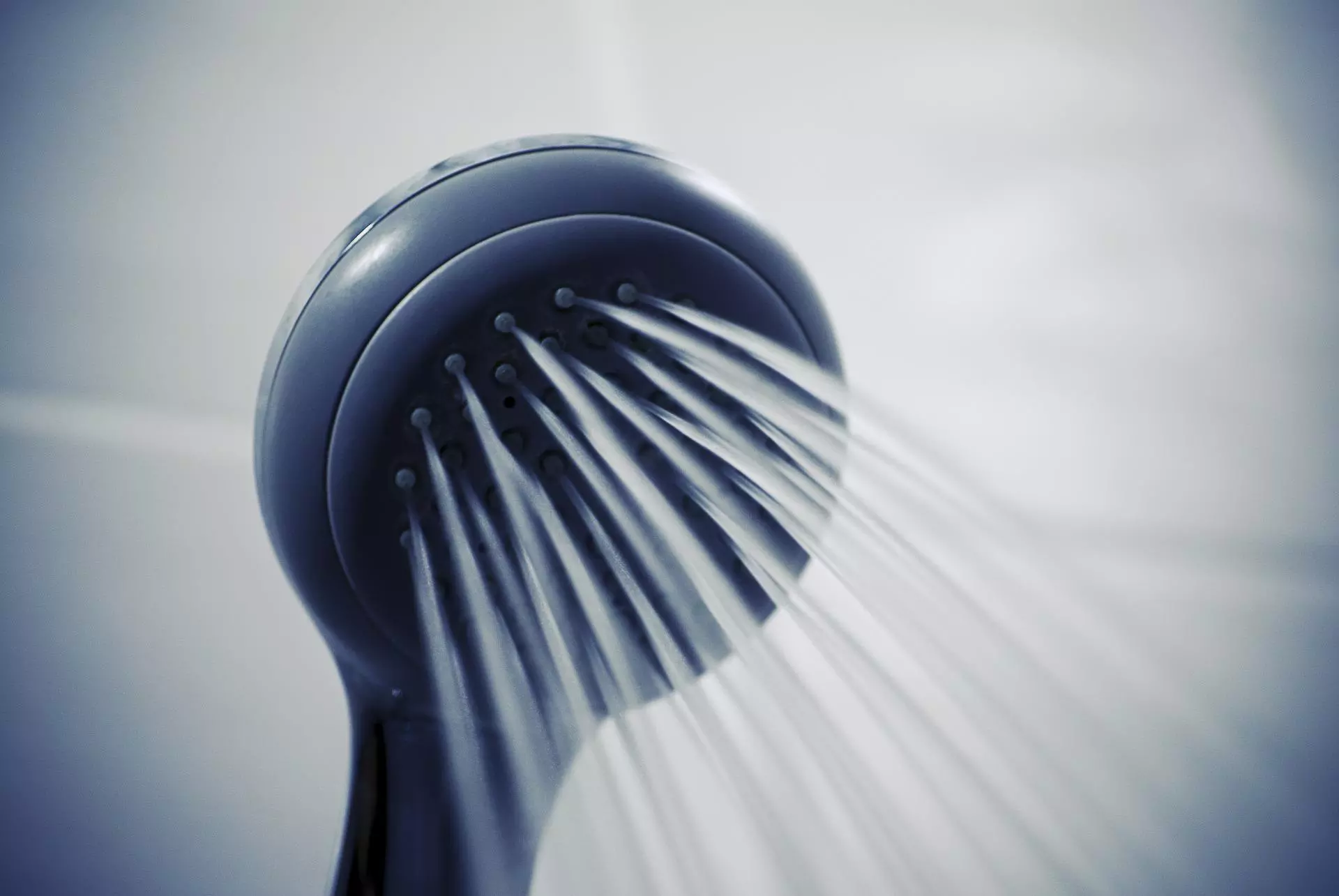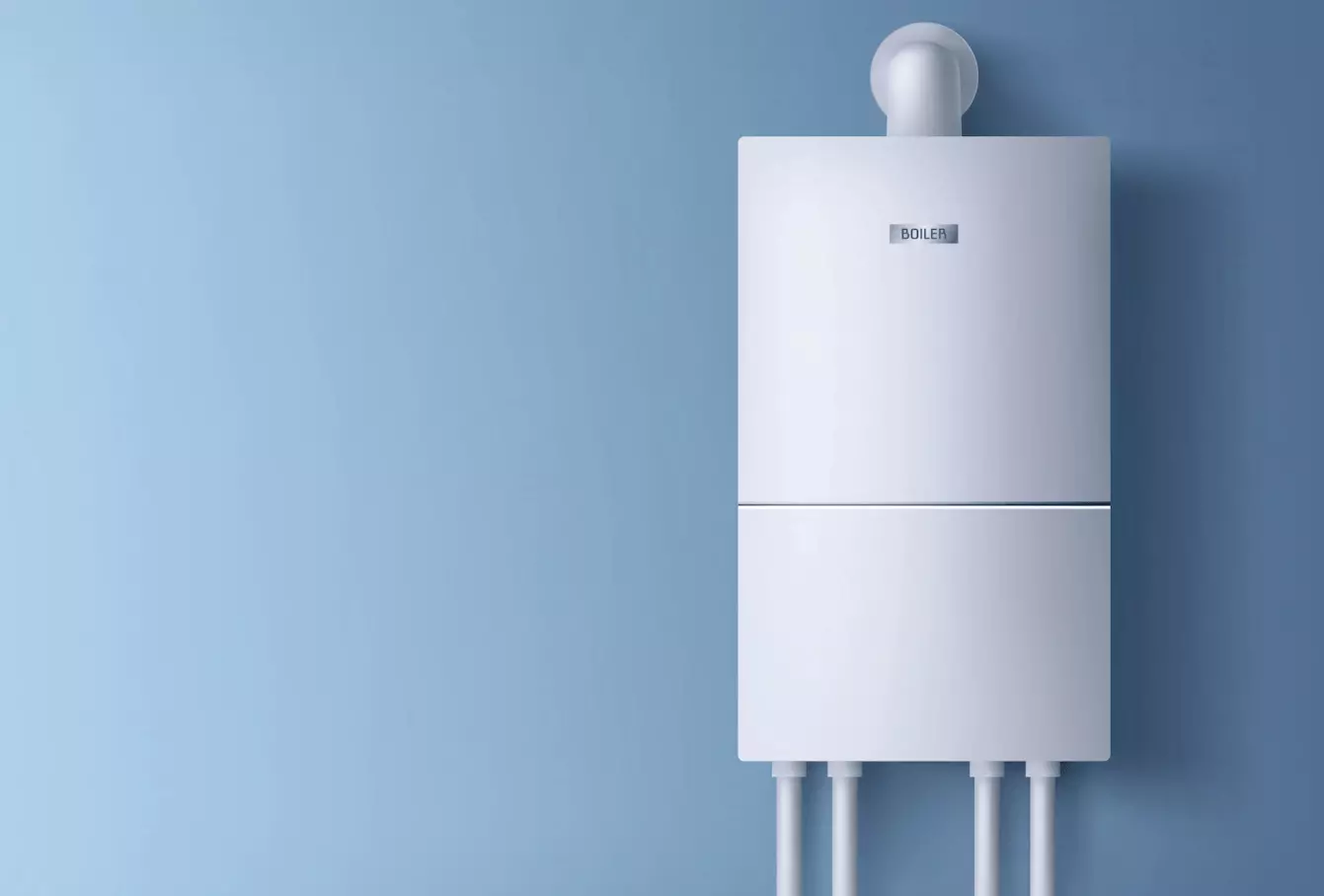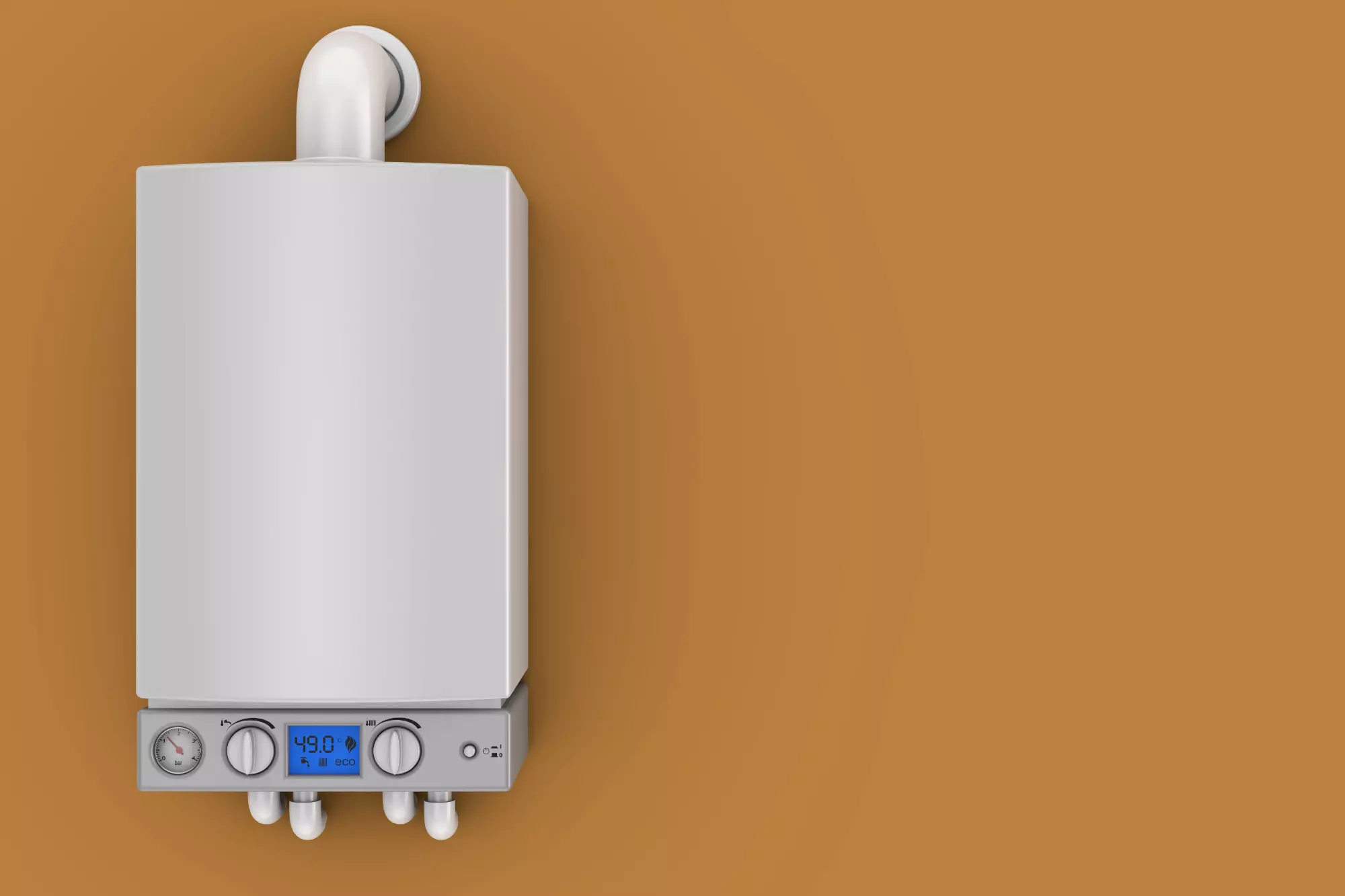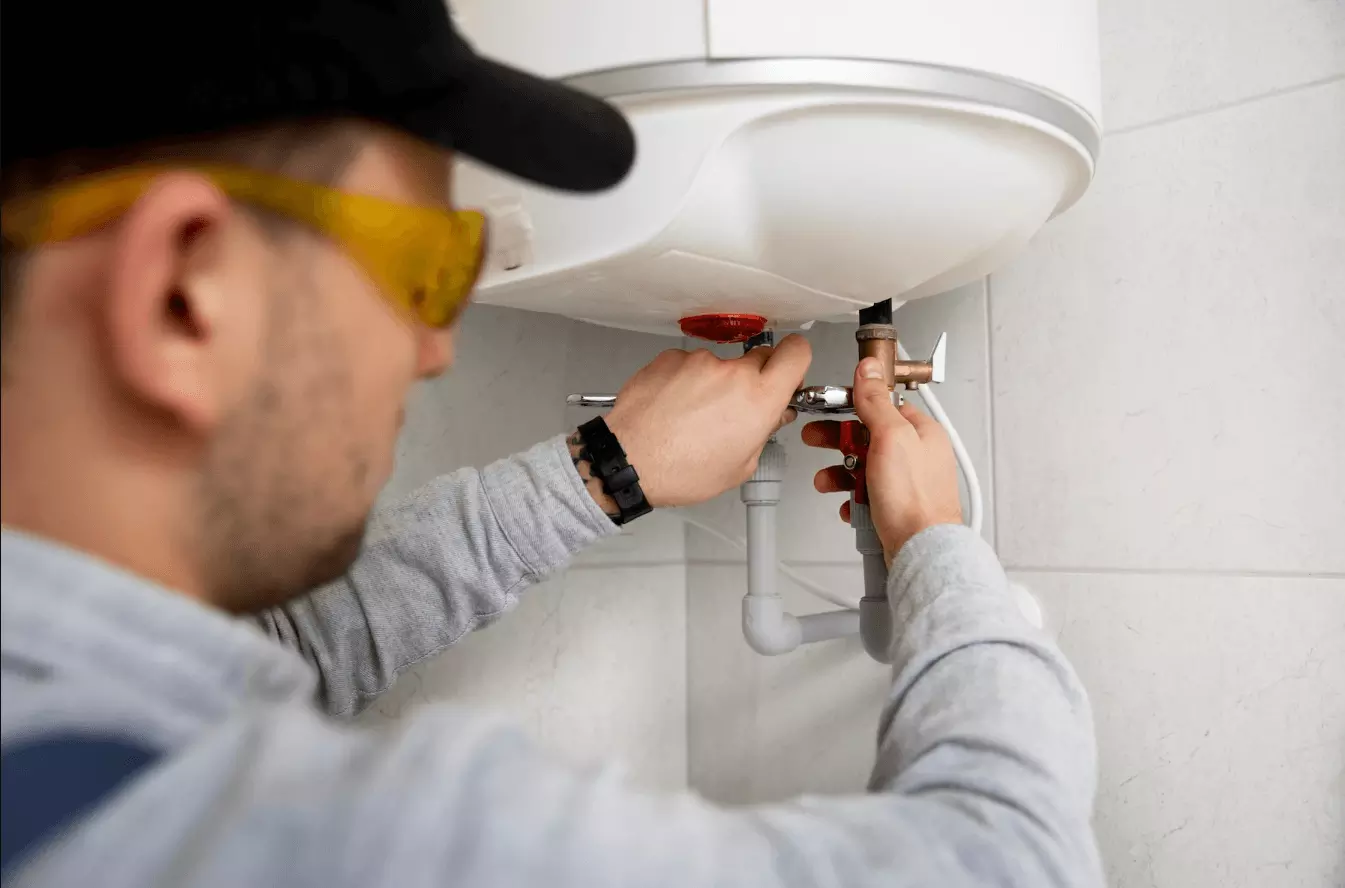This article asks: what are the 3 types of boilers? There are three main types of boilers. Knowing the differences between them can help you understand the advantages of each. We explore the combi boiler, regular boiler and system boiler. Find out how each type of boiler works and which is right for your home.
Boiler Types Explained
The three fundamental types of boilers are combi, heat-only, and system boilers. Traditional boilers, often known as heat-only boilers, are fueled by a cylinder located in the airing cupboard. In modern homes, system boilers with an "unvented" hot water cylinder are widespread (but they can work with a vented cylinder also). An appliance that combines a central heating boiler and a high-efficiency water heater is referred to as a combination boiler or "combi."
When you turn on a faucet, combi boilers instantly heat the water coming from the mains, negating the need for a cold water storage tank or a hot water storage cylinder on the roof. Since the water is heated immediately rather than heated and then held in a cylinder, they are also very economical and energy-efficient.

The ability to take a strong shower without a separate pump is another benefit of having hot water at mains pressure. While the primary components of the heating and hot water systems are incorporated into the boiler, system boilers still require a cylinder to hold hot water, which speeds up and simplifies installation.
Additionally, since there is no requirement for a tank in the loft, it can be an option in a home with little to no loft space or when the area is intended for conversion. These boilers work with solar water heating systems, which benefit the environment and save energy expenses. The finest homes for heat-only boilers are those that already have a traditional heating and hot water system connected to a separate hot water cylinder.
Along with a tank to keep the water level in the central heating system at a certain level, these boilers also need a cold water storage tank in the loft to feed the hot water cylinder. If the home has an older radiator system that may not be able to handle the increased water pressure that is produced by a system or combi boilers, a heat-only boiler may be the best alternative for replacing an existing boiler.
Combination (Combi Boilers):
How do Combi Boilers Work?
A combi boiler is a single device that provides all of the home's heating and hot water. A combination boiler warms water directly from the cold mains via an inbuilt heat exchanger. It delivers hot water instantly.
This differs from a standard system that reserves hot water in a tank before use. A combination boiler does not require a hot water cylinder or loft tanks.
Everything is handled by a single, generally wall-mounted device. Combi boilers use combustion to quickly and effectively heat water on demand using a metallic heat exchanger (by burning fuels such as gas or oil).
In contrast to conventional boilers, combi boilers have the biggest advantage in that they don't require a separate hot water storage tank. The hot water is instantaneously heated by a single unit instead.

Advantages of Combi Boilers
A combi (combination) boiler can be the best option if you're searching for a boiler that uses very little energy. They may be used to heat the water in the house as well, which will save your heating costs. They are perfect for even the smallest structures because of their small size and the fact that they heat water from the mains.
Due to the fact that they use the plumbing that already exists, you won't need to make room for a large water tank or cylinder. You won't have to wait long to take a hot, steamy shower as the water might be heated swiftly. For compact settings, combi boilers are a fantastic choice. The best combi boilers can deliver system boiler features with much fewer room requirements, and the majority of combi boilers are also quite efficient.
A combi boiler will be less powerful yet use less energy. Combi boiler designs combine two distinct appliances into a single frame, conserving space and facilitating maintenance just a little bit. Even though they could lose some of their strength as a result, they are frequently nevertheless adequate to perform in most residences and are particularly well-liked in apartments and other single-story buildings.
Disadvantages of Combi Boilers
There are a few negatives to think about. When two or more outlets are in operation at once, the flow of water is decreased. So a combi might not be the best option for you if you have a larger house with many bathrooms (which may be utilised simultaneously).
A combi boiler can only ultimately heat the water that is supplied to it by the mains. Therefore, your combi boiler won't function efficiently if your mains water pressure is low.
Heat Only Boilers:

How do Heat-Only Boilers Work?
Heat-only boilers function by supplying hot water directly to the radiators in the central heating system and storing hot water in a hot water storage cylinder for usage as needed.
A cold-water tank (usually found in the attic or loft) supplies cold water to the boiler, which is then filled by gravity. Heat-only boilers, as the name implies, solely create heat.
This implies that they do not supply hot water but are far more successful at keeping a place warm for a longer period of time.
While they lack the advantages of an additional water heating system, they are frequently referred to as "ordinary boilers" since they are typically easier than other varieties.
Advantages of Heat-Only Boilers
Heat-only boilers are more suited for bigger buildings with higher hot water demands, such as those with several bathrooms, because they can produce a greater flow rate. Many heat-only boiler designs only require two tanks: a feed and expansion tank and a cold water cistern.
They are an excellent alternative for older heating systems that might not be able to handle the high pressure of a closed system since they do not require water to be delivered at high pressure from the mains.
They are also a suitable option for locations with low water pressure main supplies, which frequently struggle to provide the necessary water pressure for combi and system boilers.
Disadvantages of Heat-Only Boilers
If you combine a traditional boiler with certain modern heating systems, you might have to wait a while for the water to reach the right temperature. Remember that you will also want a sizable place to house the boiler's water tank and cylinder.
The cold-water cistern needs to be placed directly above the boiler, which may limit where you may place the boiler.
System Boilers:
How do System Boilers Work?
The ordinary or heat-only boiler has been transformed into a system boiler. Both on-demand hot water and radiator heating may be obtained from them.
They have a separate hot water tank, however, it is unvented, unlike a heat-only boiler.
All components, including the pump and expansion vessel, are internal as well, eliminating the need for a cold-water cistern tank and allowing water to be fed to the boiler directly from the mains.

Advantages of System Boilers
As with heat-only boilers, they include a sizable hot water storage cylinder, making them ideal for homes with high hot water consumption. They require less space than a heat-only boiler since they don't require a cold-water cistern and have all of their components internalised. Additionally, it denotes more flexibility in terms of installation location.
You won't need to worry about potential leaks or freezing during the winter because system boilers don't require any pieces in the attic. Combi boiler designs integrate two different appliances into one frame, saving space and a little bit simplifying maintenance. They may suffer some strength loss as a result, but they are typically still strong enough to function in most homes.
They are especially popular in apartments and other single-story buildings. Their size is a drawback since it necessitates a sizable hot water storage tank. It could take some time for the system boiler to replenish this tank if it is empty as a result of heavy water demand over an extended period of time. They become popular among those who own considerably larger homes or estates as a result.
Disadvantages of System Boilers
If the mains supply pressure is low, which controls a major amount of the hot water flow rate within the house, this flow rate will be impacted. As a result, they are not the ideal option for areas with low water pressure.
This system might not be suitable for buildings with older systems because of its high pressure. Since system boilers need a hot water storage cylinder, you will need to find extra storage space if you are replacing a system boiler with a combi boiler.
What Kind of Boiler Do I Need?
The type of boiler you require should be your initial choice. Even if they produced the same quantity of hot water, heat only, combi, and system boilers operate significantly differently from one another and thus would not interact with your central heating in the same way. For instance, a combi boiler only stores a small amount of cold water inside the boiler frame and does not have a cold water storage tank. Due to the lack of a reservoir, a combi boiler is a poor choice for locations where the water supply can frequently be stopped.
The energy-efficient combi boiler, on the other hand, is perfect for a smaller home or an apartment in a taller building since it can provide warmth for less money than ordinary boilers and does not need a water tank. Even if you are confident that a water tank is not something you desire, there are a number of different types of combi boilers available.
Some people may even add a water tank to their combi boiler in order to create a weaker system boiler because there are always options for this kind of modification. The type of boilers you wish to use is significantly influenced by the number of radiators in your home. Numerous radiators require a lot of hot water, but this issue goes beyond scale because most radiator systems are linked together continuously. This implies that when the water moves through each radiator, it may gradually lose heat.

In a system that was badly constructed, the radiators at the end of this chain may be flooded with cold water. If a normal boiler is unable to provide enough hot water to cover each radiator, you may need to convert to a new boiler that can sustain this heat (or move the water faster). Too much instant hot water might overwhelm the system in homes with a limited number of radiators, especially at greater pressure.
In these situations, a somewhat less powerful and less expensive boiler might be helpful since it avoids wear and tears on the pipes; but, if your radiators are broken, you might want to think about replacing them. Furthermore, if your house periodically needs additional hot water, it's important to consider how size influences how much room you need and how much water can be heated at once.
You need the energy to heat water, and most energy comes from sources that contribute to pollution. Regular boilers that use gas, coal, or oil consume fossil fuels and occasionally emit CO2 into the atmosphere, which increases your carbon footprint. Always choose an environmentally responsible choice, if possible.
No matter the kind of boiler - combi, system, conventional, or condensing - a cleaner atmosphere and improved overall heat efficiency result from less-polluting boilers. How quickly water moves through your system and exits your faucets, showerheads, and other appliances are determined by the flow rate.
A decent flow rate is often beneficial if you are attempting to move water up many levels as long as you do not opt for anything too high, similar to how pressure simply helps you determine whether boilers perform to the standard that you would require. It's crucial to have a gas-safe boiler approved and governed by the appropriate agencies, and not simply for legal reasons.
It may be quite risky to try to reduce heating costs by unsafely altering boilers, therefore, it's crucial to know that your new boiler won't blow up or scald you with hot water while it's operating. A nearby open vent is essential for many boilers to keep the air cold and allow surplus water vapour to escape.
Do you need a boiler engineer in East London?
Contact us for plumbing and heating services in Docklands, Waltham Forest, Tower Hamlets, Lewisham, Newham, Hackney, Southwark or Greenwich.

